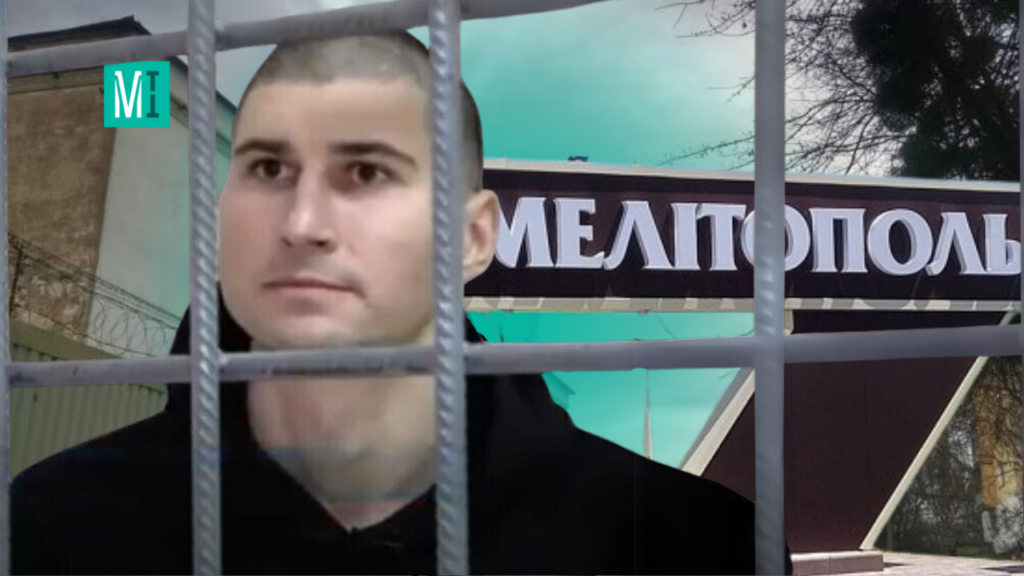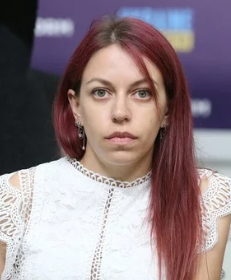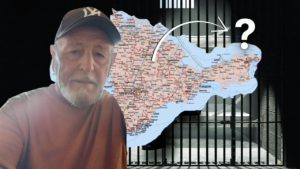Terrorism and attempted arson of a person: what the Russians accuse Kostiantyn Zinovkin from Melitopol of and where he is held

The Russians occupied Melitopol in the first days of the full-scale invasion. They immediately seized the administrative buildings and started dispersing pro-Ukrainian protests with weapons, abducting local residents and holding them hostage. Kostiantyn Zinovkin, who stayed in Melitopol to care for his mother and grandmother, was not spared either.

Since 26 February 2022, Melitopol has been temporarily occupied by Russian troops. The photo is illustrative
The incident occurred on 12 May 2023. Kostiantyn left home and never returned. Instead, three people in civilian clothing and balaclavas entered his apartment. At that time, Kostiantyn’s mother was at home. The unwelcome guests neither introduced themselves nor showed their IDs. Instead, they searched the apartment and took all the documents, the keys to the car, and the summer house. They interrogated the woman for several hours, forced her to write biographies of all family members, and then kept her in the occupation commandant’s office. She was told that her son had been detained for ‘violating the regime’ and would be released as soon as they had sorted out the situation. However, Kostiantyn did not return home.

Kostiantyn Zinovkin disappeared on 12 May 2023 in Melitopol. Photo: family archive
Pryazovske and Chonhar. Where is Kostiantyn Zinovkin being held?
For a month, the family did not know where he was. His mother and sister would attend the occupiers to learn at least some information. They replied that they did not have Kostiantyn and chased them away. Later, the Zinovkins’ house was searched again by two strangers who introduced themselves as investigators and ‘witnesses.’ The ‘investigators’ claimed that Konstantin had been detained by the Federal Security Service (FSB) and had allegedly confessed to wanting to blow up a person. His wife, Liuciena Zinovkina, calls such accusations insanity.
“Just so you understand, we haven’t been eating meat for many years because we don’t want animals to suffer because of us. Blowing up a human is very wild and unlike him.”

Kostiantyn Zinovkin with his wife Liuciena. Photo: family archive
The ‘investigators’ claimed that Kostiantyn was being held at the police department in the village of Pryazovske near Melitopol. His mother went there three times to deliver clothes and food. However, on 26 July, the occupiers announced they were transferring the man to Pre-trial Detention Center No. 2 in Chonhar, the Kherson region. In response, Liuciena Zinovkina sent inquiries to the occupiers in Crimea, the ‘DPR,’ ‘LPR,’ and the Russian Ombudswoman, Tetiana Moskalkova, but they ignored her. The supposedly Human Rights Ombudswoman in Crimea promised to forward the appeals to the authorized bodies. In August 2023, Kostiantyn’s wife received a response from the pseudo-prosecutor’s office in Melitopol stating that her husband was accused of terrorism and preparing to commit a crime and was being held in Pre-trial Detention Center No. 2 in Chonhar. Since then, her husband’s mother has been traveling there every month to deliver parcels. There is also the opportunity to correspond by mail; however, the family did not receive any letters for several months — as it turned out, the postwoman had left them in the shared mailbox on the street.

In June 2023, the Crimean Human Rights Group reported that the occupiers had opened an unofficial pre-trial detention center in the village of Chonhar, the Henichesk district, the Kherson region. Photo: Mejlis of the Crimean Tatar people
“The scariest thing about this situation is that whenever Kostia wrote a letter, he asked about something, told something, and requested something, but his mother never passed that on. Every time he wrote a letter, he realized his mother had not received it.”
During correspondence, discussing the conditions of detention is prohibited. However, Liuciena gleaned from another civilian previously detained by the Russians in Chonhar and later released that the hostages were not allowed outdoor access, constant surveillance was maintained in the cells, and the only privacy available was within the restroom. Occupiers also subjected Ukrainians to torture.
“The person has a choice: to do what they demand or die. Kostia has chosen the option to live,” his wife recounts.
Courts and a report in Kiselyov’s program
On 30 May, the occupiers initiated a ‘criminal proceeding’ against Kostiantyn. Since then, he has been brought to Melitopol every three months for continued preventive measures. However, the Zinovkin family is unaware of any details either about the hearings or the names of the so-called judge and prosecutors. Kostiantyn writes in his letters that he is supposed to be tried by a military court, even though he is a civilian. The last hearing occurred on 25 January, but the outcome remains unknown.
During one of the hearings, Kostiantyn’s mother met her son in person for the first time since his abduction. Before that, the family had only seen him in the Russian propagandist Dmitry Kiselyov’s program. In the October issue of ‘Vesti Nedeli,’ the Russians refer to Kostiantyn as ‘an unhealthy person who has been influenced in every possible way’ because even being held hostage in Russia, he claims that Russia occupied Donetsk and Luhansk and calls the Western weapons provided to Ukraine as partner assistance.

Kostiantyn Zinovkin in a propaganda segment on ‘Vesti Nedeli.’ Photo: screenshot from the video
“Kostia is lingering; it’s evident that he hasn’t been broken despite everything. He continues to uphold a pro-Ukrainian stance,” Liuciena Zinovkina reveals.
Since the last ‘court’ session, the Russian lawyer assigned to Kostiantyn Zinovkin by the occupiers has been ignoring all messages from his wife.
This material is published with the support of the European Endowment for Democracy (EED). Its contents do not necessarily reflect the official position of the EED. The information or views expressed in this material are the sole responsibility of its authors.







